Warning: spoilers for Wonka.
- Wonka includes references and Easter eggs from previous versions of Willy Wonka, including Gene Wilder’s iconic cane and dance on the stairs.
- Chalamet’s Wonka puts a twist on Wilder’s famous line, saying “Scratch that, reverse it!” in his own version of the quote.
- The movie features nods to other characters and elements from the novel and previous movies, such as Slugworth and the promise of a lifetime supply of chocolate.
Wonka tells the story of a young Willy Wonka (Timothée Chalamet), but despite its time setting, it has various references and Easter eggs from past versions of the character, as well as the source novel. Directed by Paul King, Wonka is a musical fantasy movie based on the character from Roald Dahl’s 1964 novel Charlie and the Chocolate Factory, but instead of following him as the eccentric owner of Wonka Factory, who hid Golden Tickets on five chocolate bars, Wonka takes the audience many years back to meet a young and naive, yet very cheerful Willy Wonka.
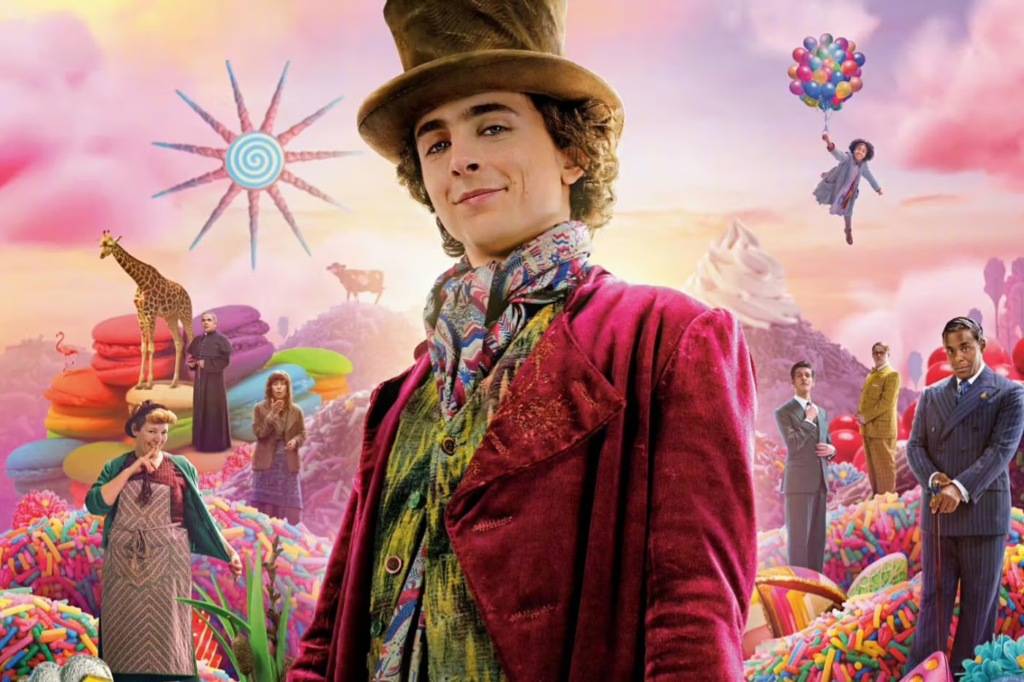
Wonka follows aspiring inventor and exceptional chocolatier Willy Wonka as he arrives in a new city with hopes of opening his own (and very unique) candy shop. However, Wonka comes across a couple of enemies, such as the Chocolate Cartel, who go to lengths to keep him out of the chocolate business. Despite exploring the young years of Willy Wonka, Wonka isn’t part of the timelines of the 1971 movie nor Tim Burton’s adaptation of Dahl’s novel, but it has various references and Easter eggs from these as well as the novel.
11Slugworth, Prodnose, & Fickelgruber
Willy Wonka’s rivals appear in the movies & the novel
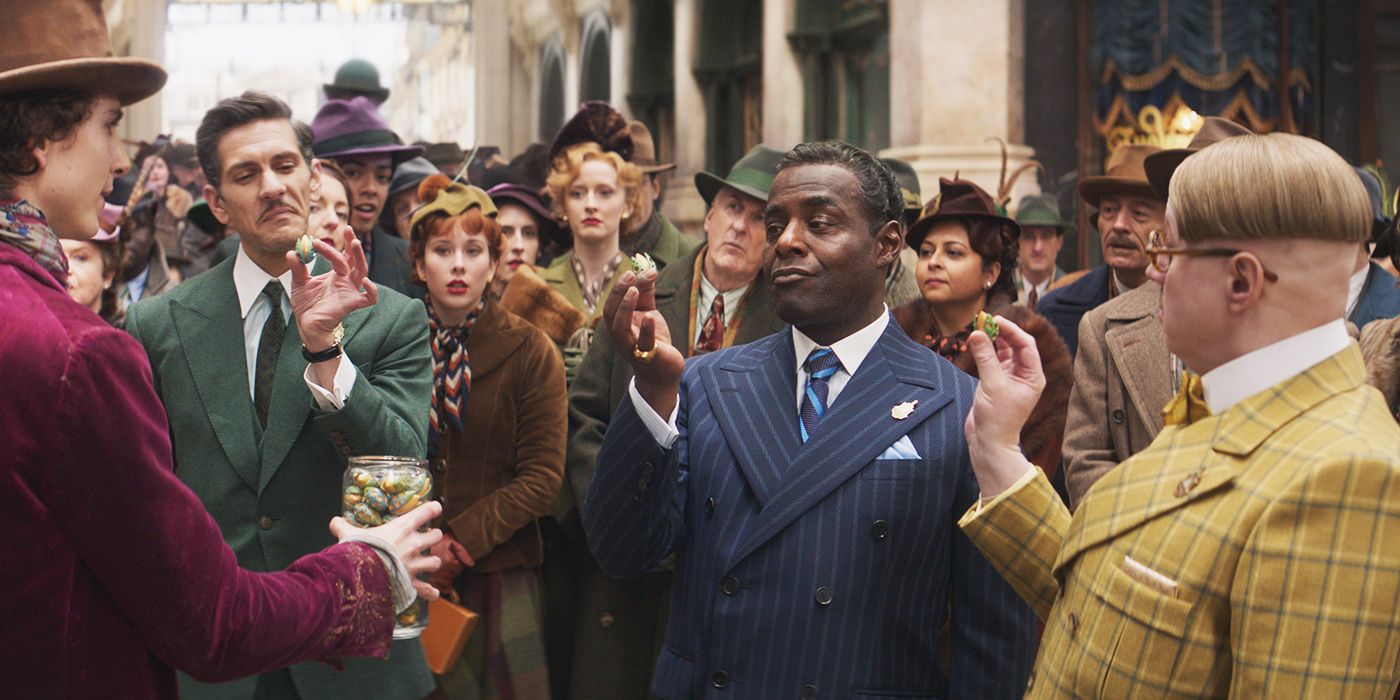
Willy Wonka’s genius and creativity caught the attention of rival candy makers who wanted to either stop him or steal his recipes. These enemies were Arthur Slugworth, Mr. Prodnose, and Mr. Fickelgruber, who in Wonka formed the Chocolate Cartel. These three chocolatiers appear in Dahl’s novel and Slugworth was mentioned in the 1971 movie, with his and Fickelgruber’s candies seen at Bill’s Candy Shop. In Burton’s version, the three make very brief appearances when Grandpa Joe tells Charlie about the spies who were stealing ingredients from Wonka’s factory.
10A Lifetime Supply Of Chocolate
Willy Wonka has a thing for promising lifetime supplies of chocolate
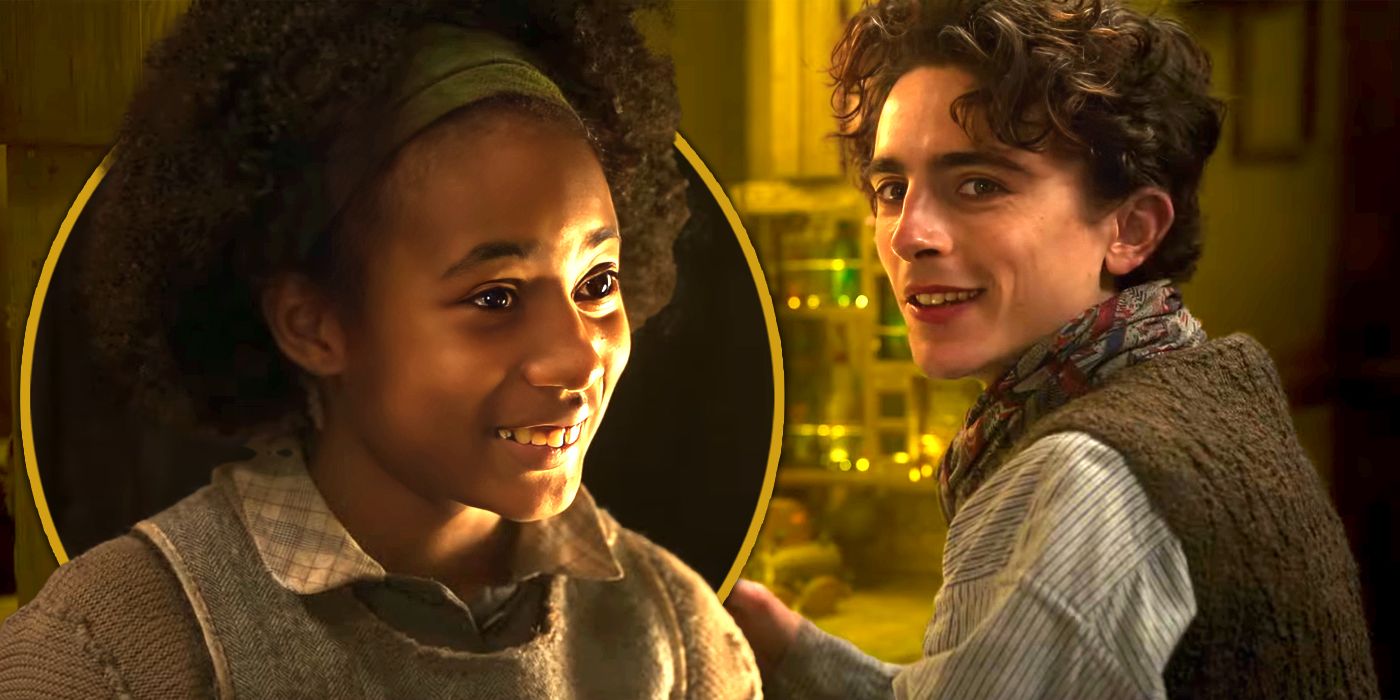
Chalamet’s Wonka promises his new friend Noodle that, if she helps him, she will get a lifetime supply of his chocolates, which is a promise that the audience has heard before. Both Wilder and Depp’s versions of Willy Wonka promised the winning kids lifetime supplies of Wonka candies, with Charlie Bucket being the winner. This, of course, is also what Charlie gets at the end of the novel when Wonka makes him the heir to his business.
9“Good day, sir!”
Hugh Grant’s Oompa Loompa used a famous Willy Wonka line
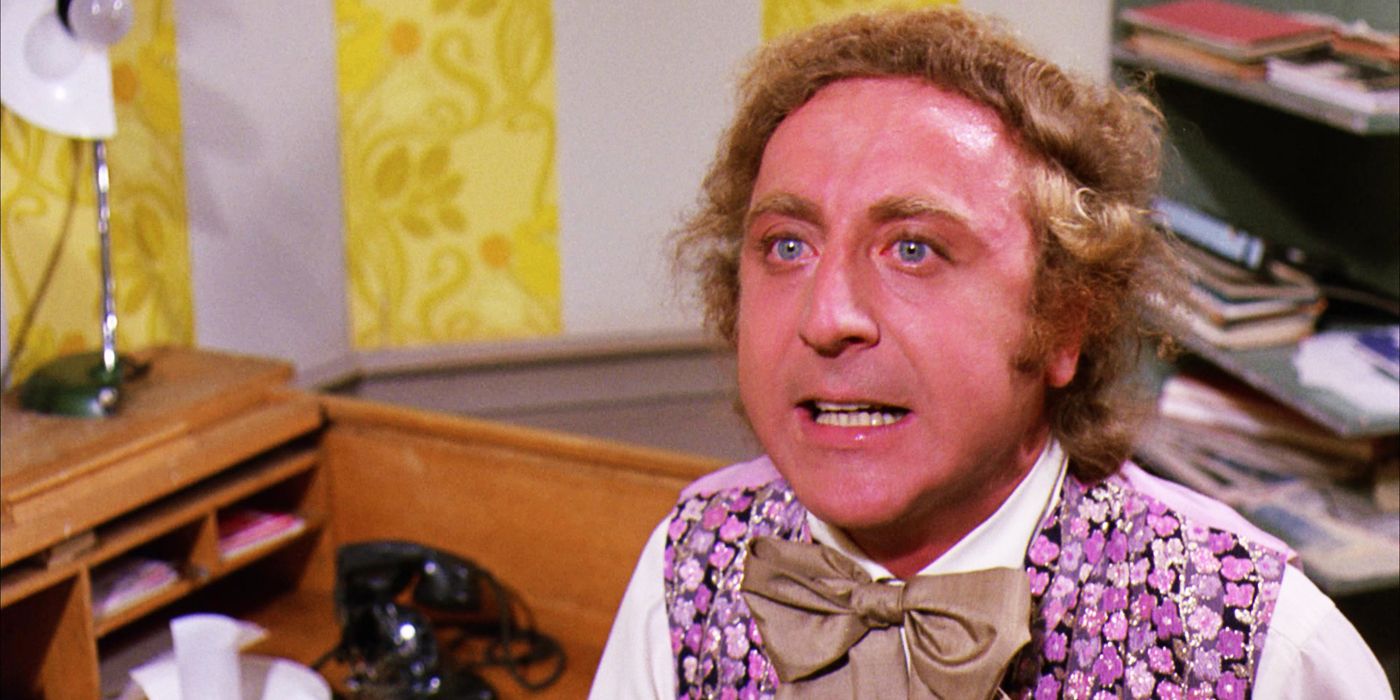
One of Gene Wilder’s most famous lines as Willy Wonka was “good day sir!”, which he angrily said to Grandpa Joe and Charlie when he found out they stole the Fizzy Lifting Drinks. The line was included in Wonka except that it wasn’t the chocolatier who said it, but Lofty, the Oompa Loompa played by Hugh Grant. Lofty politely said goodbye to Wonka with “good day, sir!”, without the anger that made Wilder’s delivery so iconic.
8Willy Wonka’s Travels To The Land Of Oompa Loompas
Willy Wonka got his chocolate from the land of Oompa Loompas
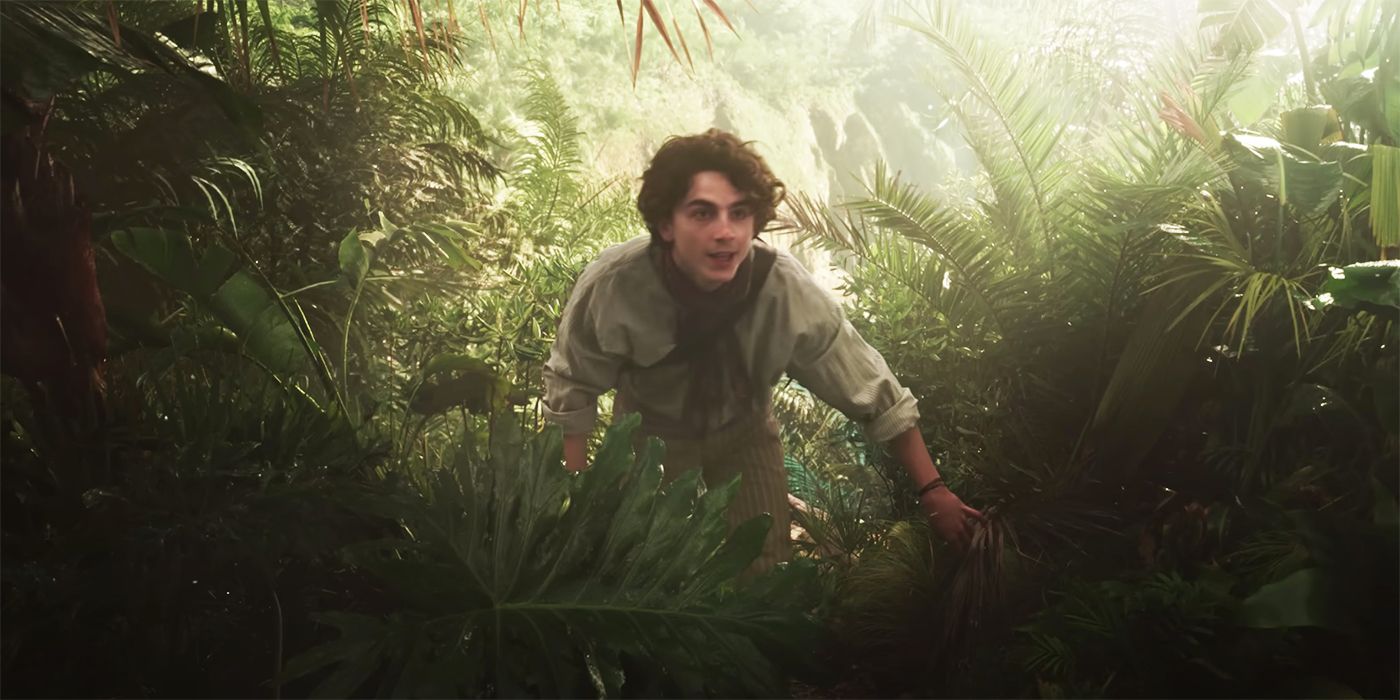
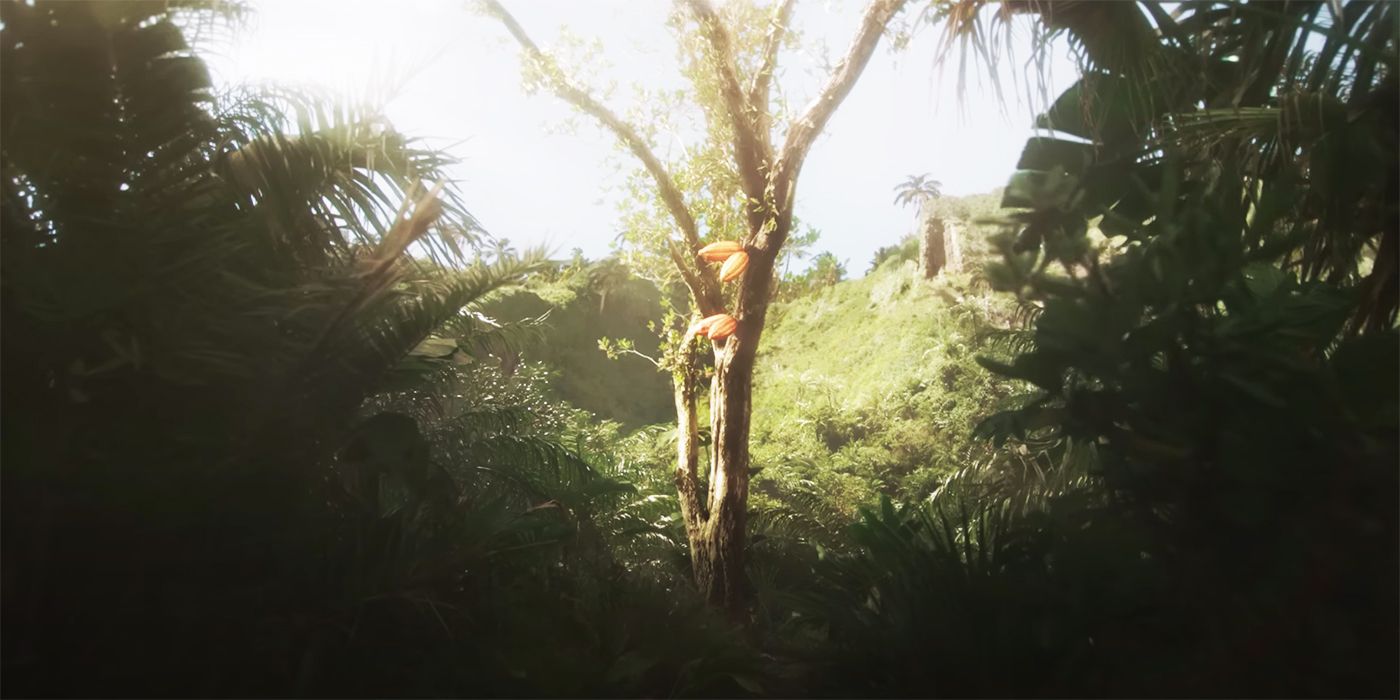
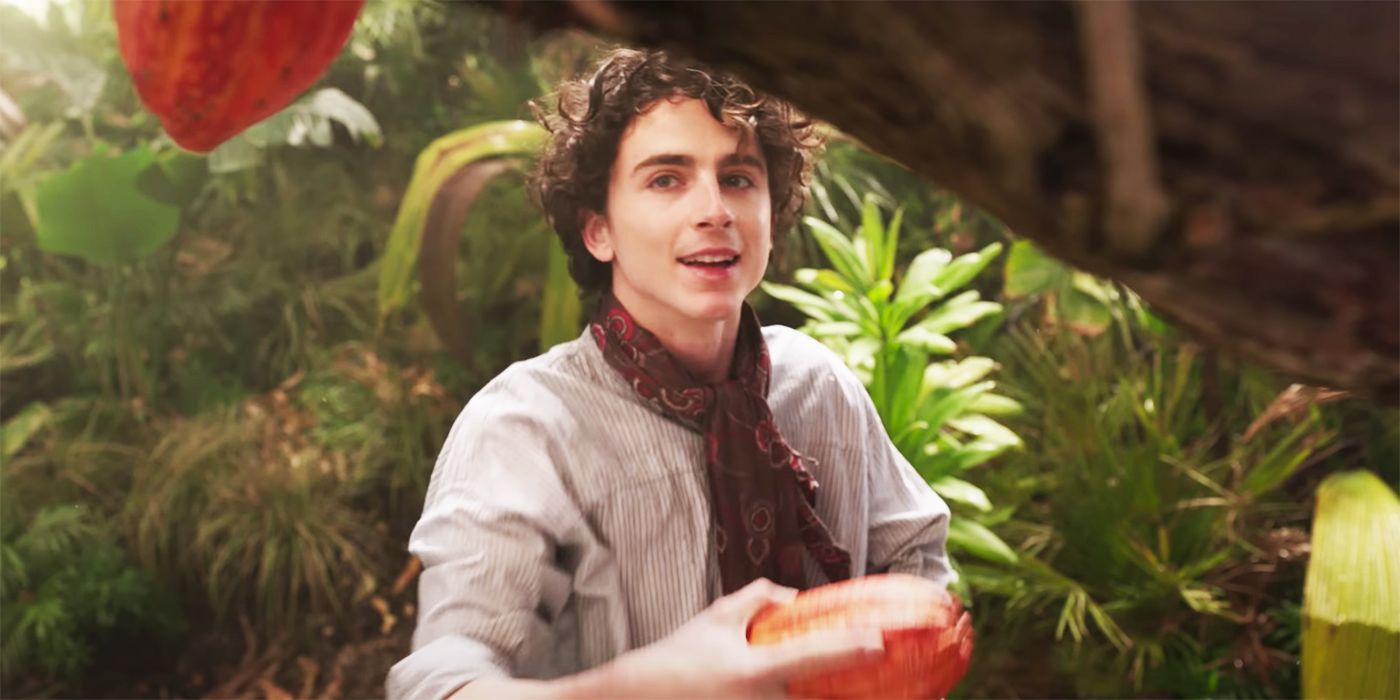
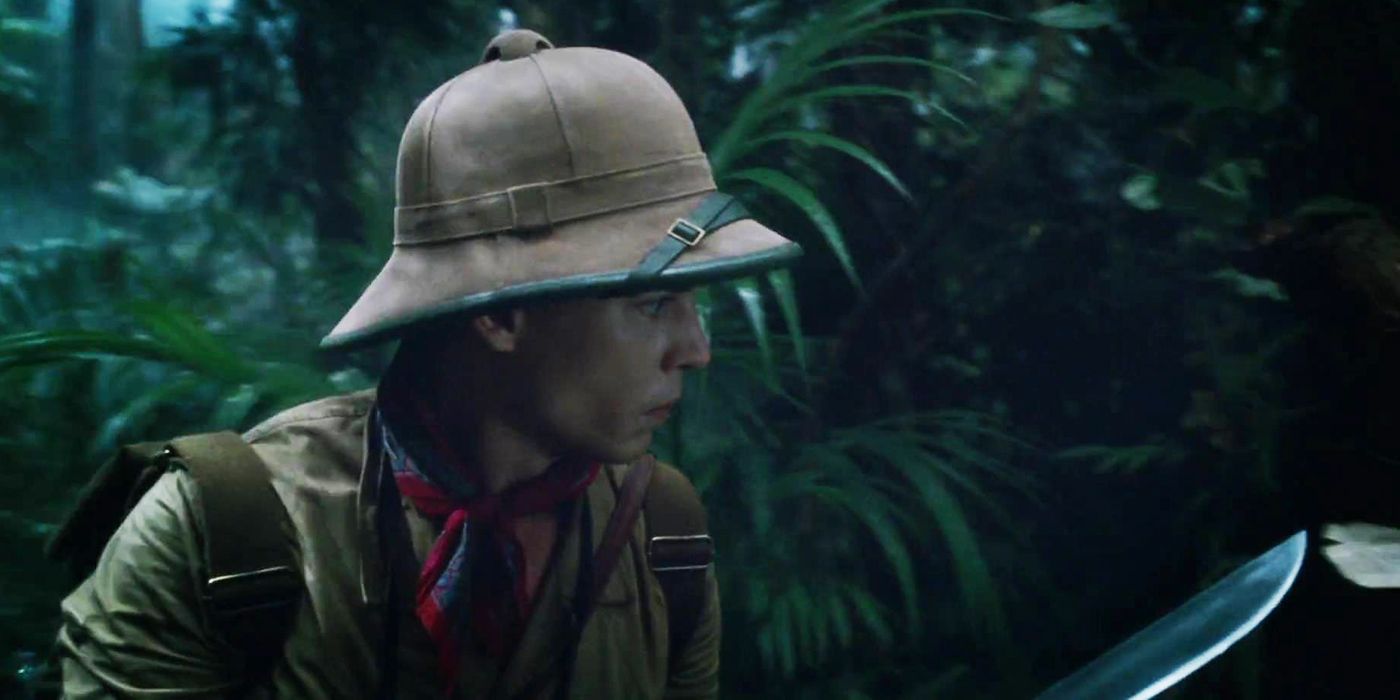
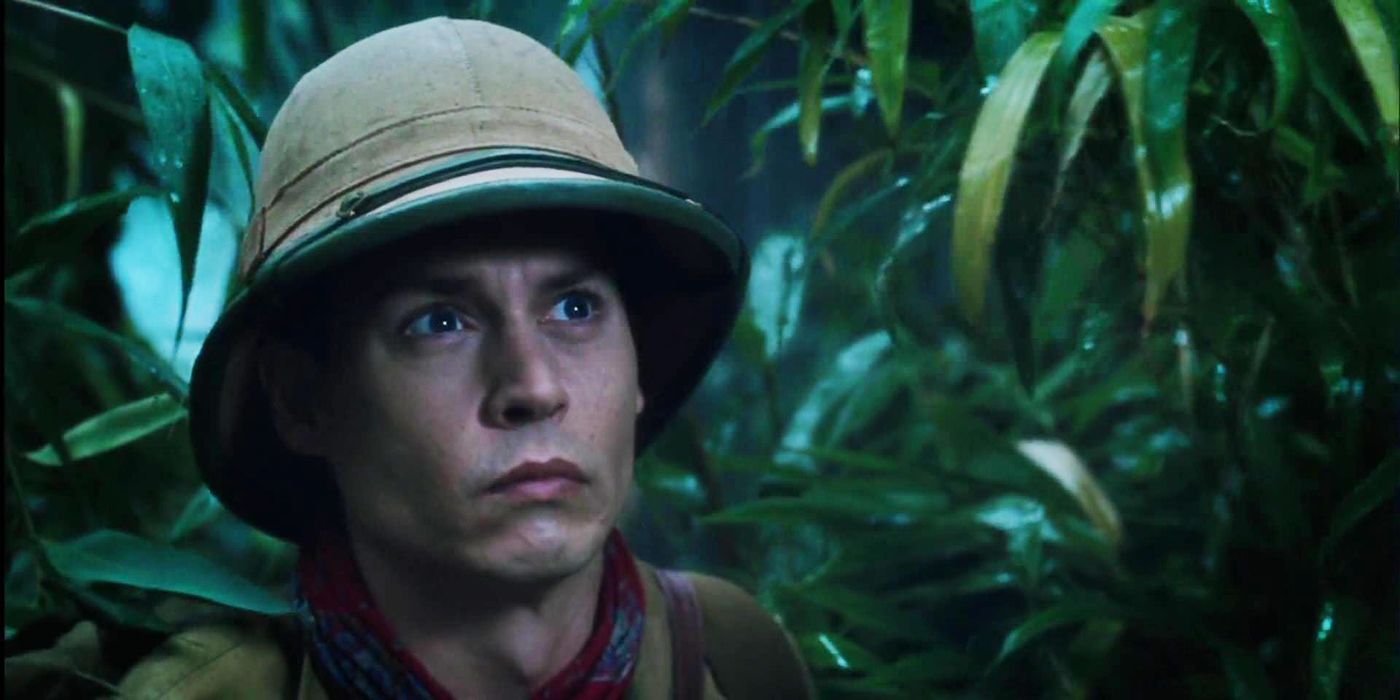
Lofty had been following Wonka for years and stealing his chocolate, and Wonka finally learned why when he captured the Oompa Loompa. As it turns out, Wonka traveled to the land of the Oompa Loompas and took their cacao beans, which got Lofty into trouble as he was supposed to be guarding the beans. This is reminiscent of the travels of Johnny Depp’s Willy Wonka in Charlie and the Chocolate Factory, who also went to the land of the Oompa Loompas looking for new flavors for his candies, but instead of just taking the ingredients he needed, he made a deal with the Oompa Loompas.
7A World Of Pure Imagination
Gene Wilder’s song was brought back
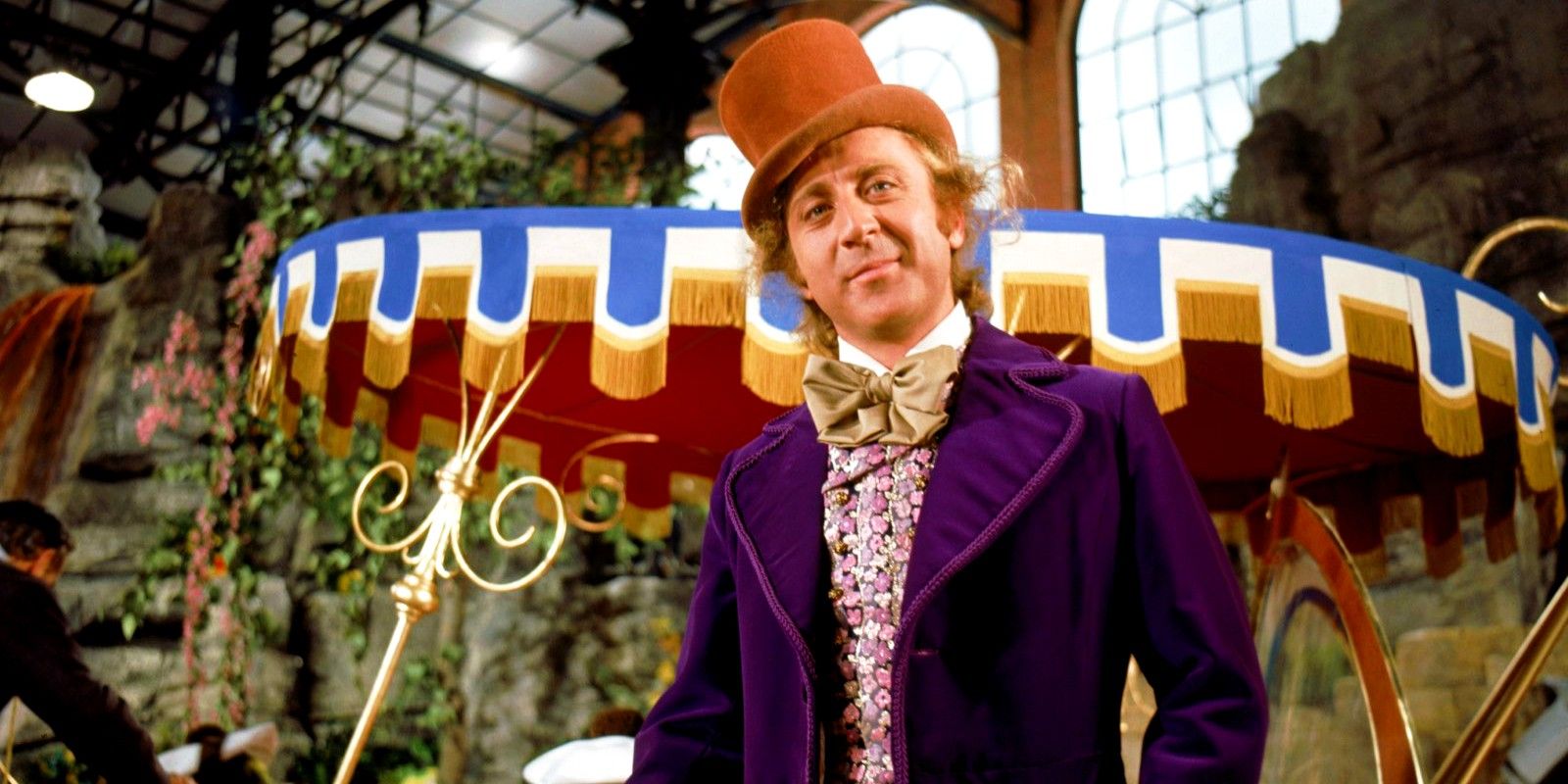
Wonka features original songs but also two from the 1971 movie. Chalamet’s Wonka sings “Pure Imagination” at the end of Wonka, when he takes Noodle to his mother, and moments later, he uses it to convince Lofty to become his business partner at the factory he’s about to open. Part of the song was featured in some of the teasers for Wonka, giving the audience a taste of Chalamet’s singing skills.
The Catchy Oompa Loompa Song
Hugh Grant’s Oompa Loompa had his musical number
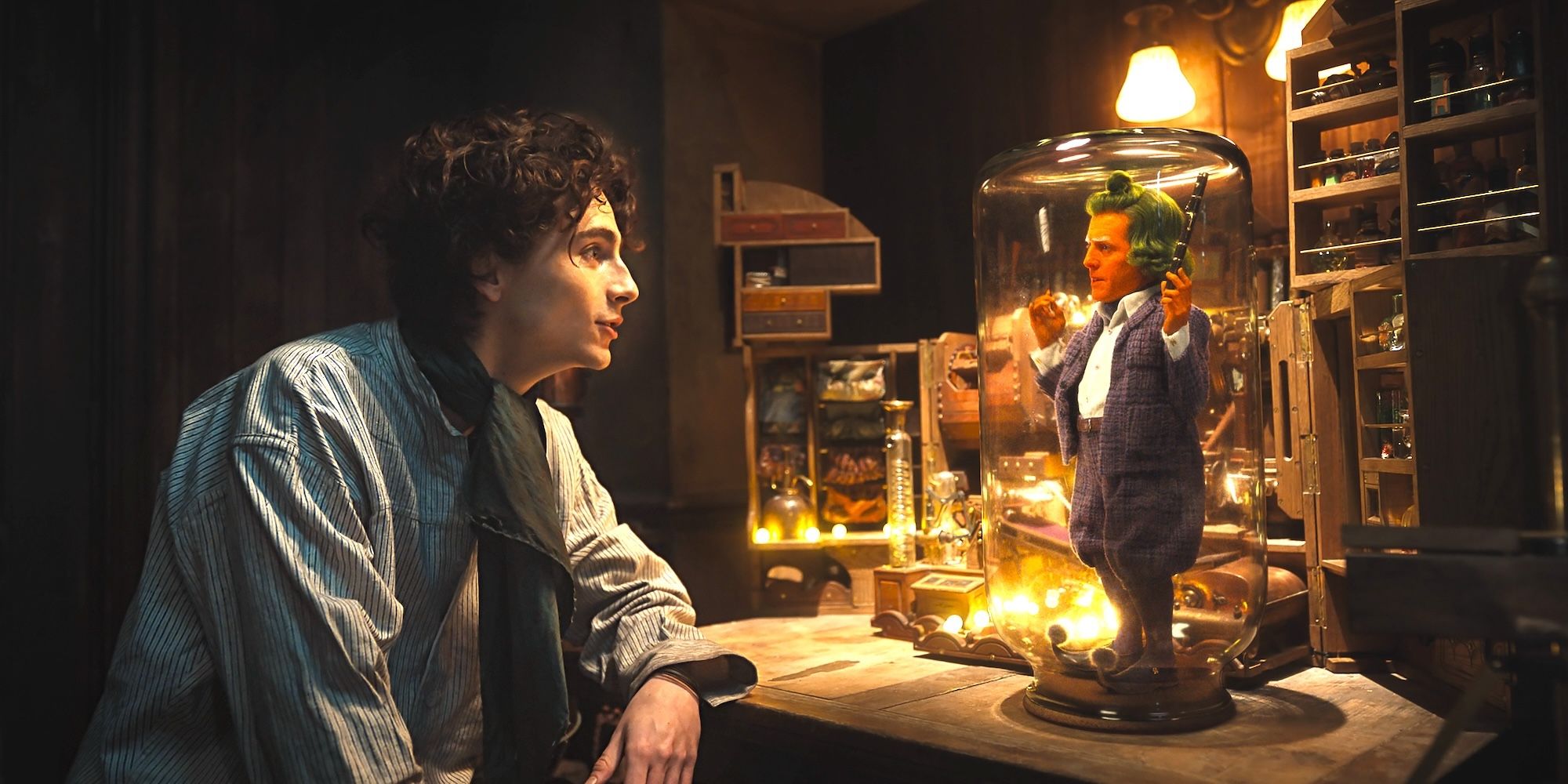
Lofty also had his musical moments as Wonka brought back “Oompa Loompa” from Willy Wonka and the Chocolate Factory. Lofty sings the iconic tune when he tells Willy about the debt he has with his people and why he has been following him for years, and the song returns in the mid-credits scene where he uses the song to reveal what happened to Noddle and the rest of Wonka’s friends, as well as how Mrs. Scrubbitt and Bleacher paid for their crimes.
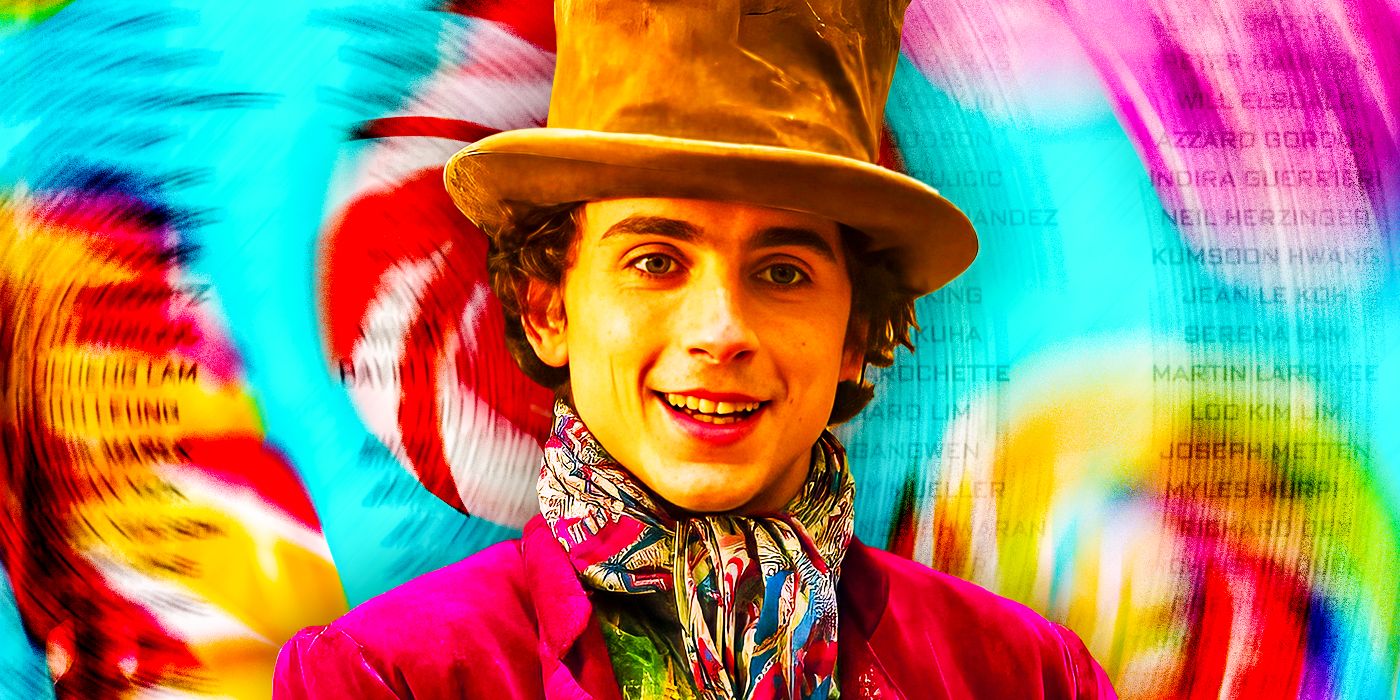
Wonka’s Mid-Credits Scene Explained
Wonka includes some bonus footage after the credits begin. Here’s what happens in the Wonka mid-credits scene and what it means for the franchise.
Candy That Makes Hair Grow A Bit Too Much
One of Tim Burton’s Oompa Loompa’s had a case of too much hair

When Wonka finally opens his magical candy store, all the joy and happiness ends abruptly when some of the customers start having side effects from eating some of the candy. It’s then revealed that Mrs. Scrubbitt and Bleacher tainted the chocolates with yeti sweat, causing excessive hair growth and skin discoloring. In Burton’s Charlie and the Chocolate Factory, Willy Wonka explained to the kids and their parents that one of his newest inventions backfired and caused excessive hair growth, with an Oompa Loompa walking around covered in long hair.
Willy Wonka & Noodle Drowning in Chocolate
Willy Wonka knows what August Gloop would go through
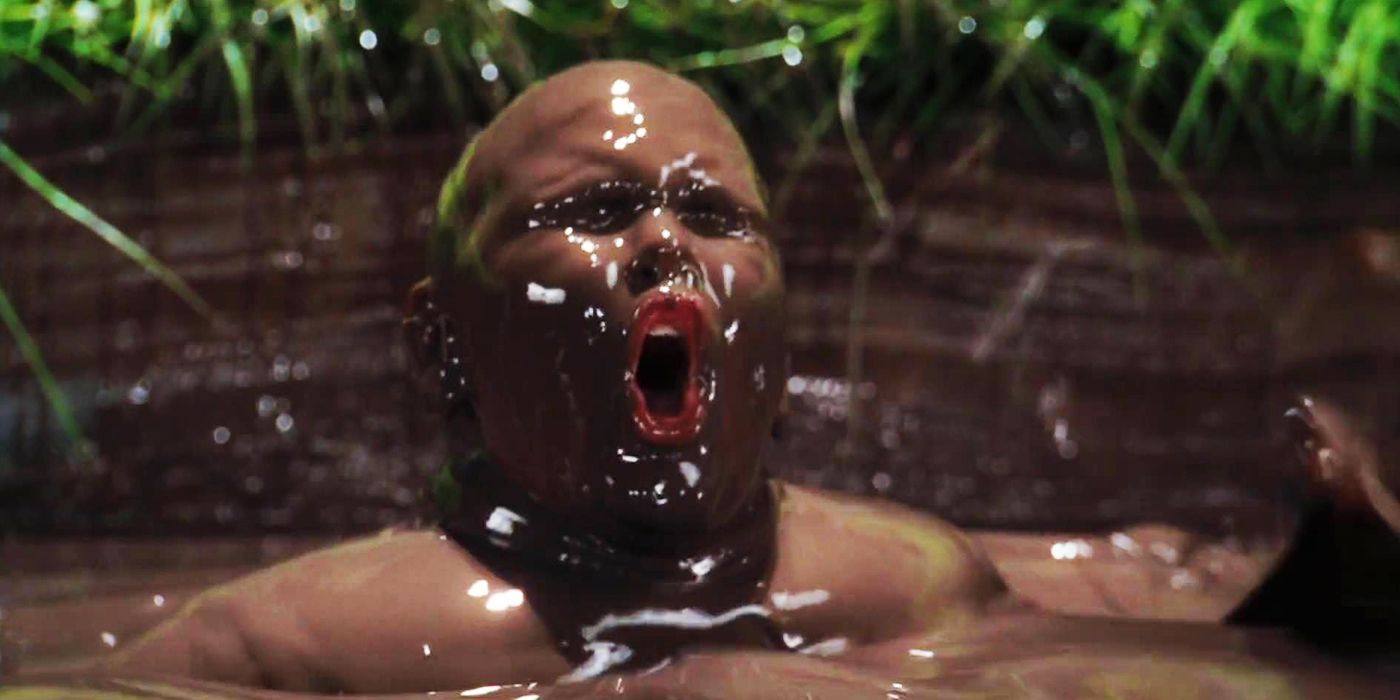
In the third act of Wonka, the Chocolate Cartel caught Wonka and Noodle and forced them into the vault where they kept the chocolate reserves to drown them in chocolate. Wonka and Noodle swimming in chocolate trying to save themselves is reminiscent of what happened to Augustus Gloop in the book and the previous movies when he fell into Willy Wonka’s river of chocolate inside the factory.
The Hoverchocs & Their Side Effects
The Hoverchocs had similar effects as the Fizzy Lifting Drinks
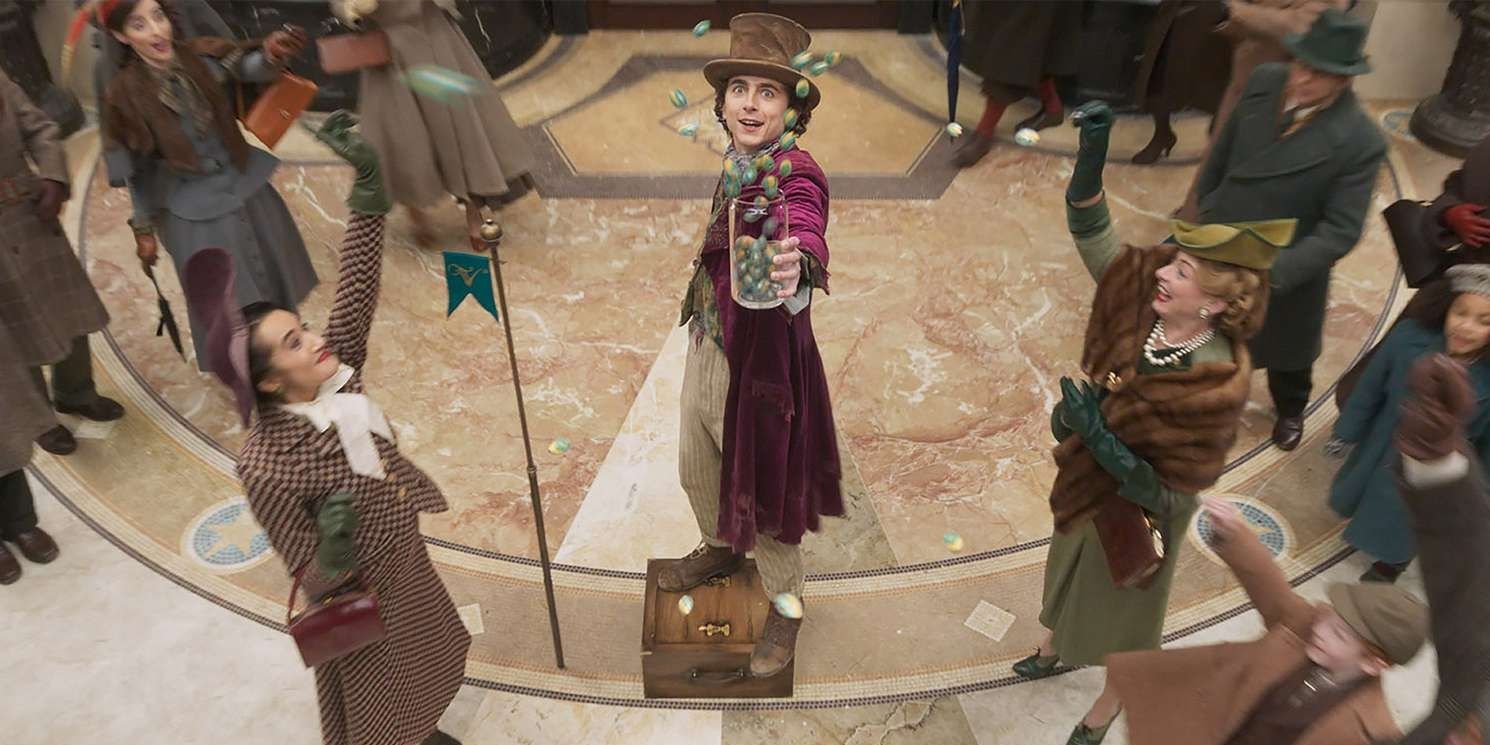
The first of Wonka’s candies to be shown in the movie are the “hoverchocs”, which are chocolates that make those who eat them fly, and in order to come down, they have to fart. The “hoverchocs” are reminiscent of the Fizzy Lifting Drinks from Willy Wonka and the Chocolate Factory, which made Charlie and Grandpa Joe float, and to avoid a fatal encounter with the ceiling fan, they had to burp to come back to the ground.
Willy Wonka’s Edible Decoration
The shop & the factory had edible decoration
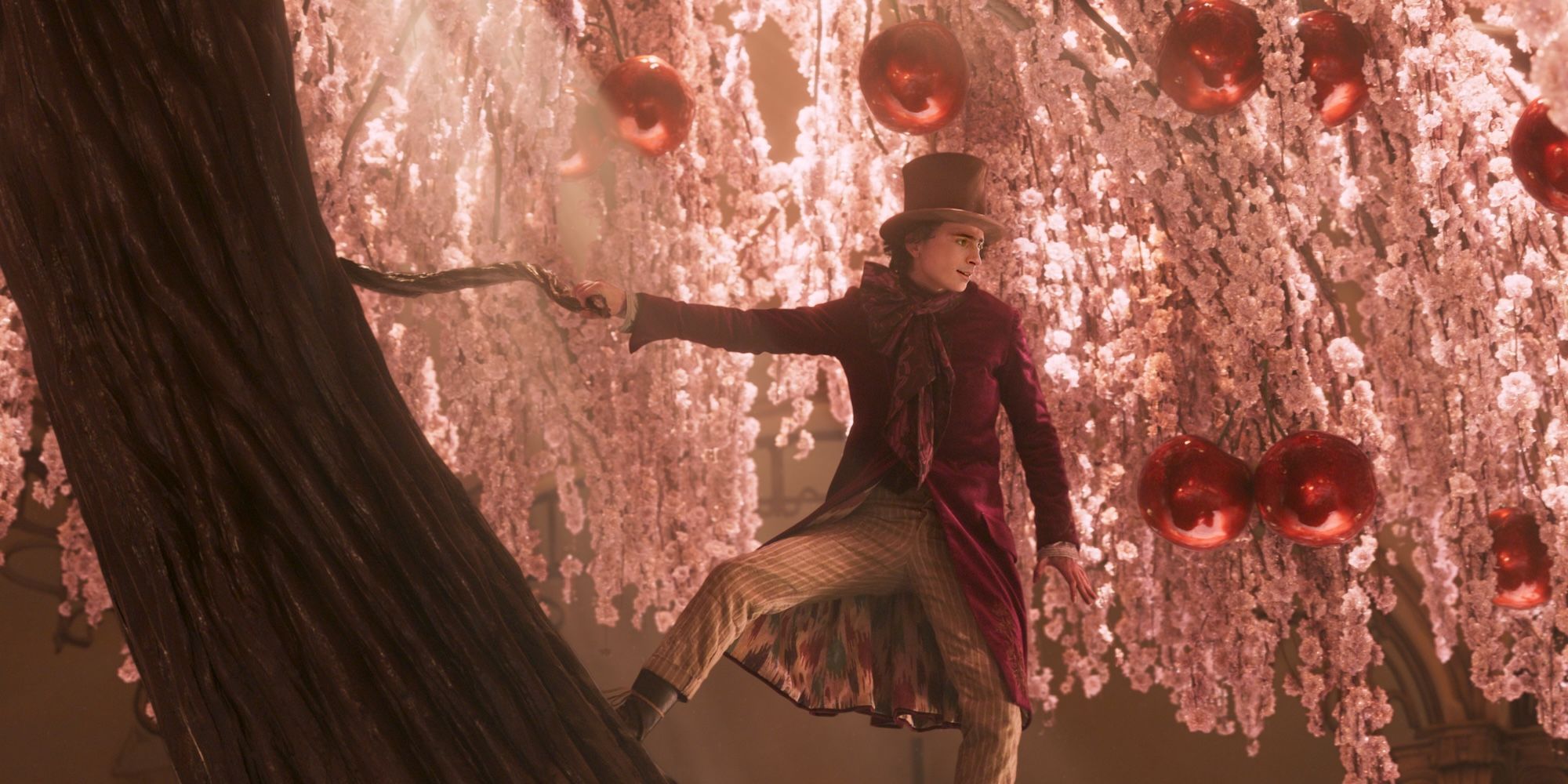
One of the most fascinating things about Willy Wonka’s factory is that everything is edible, prompting the kids and their parents to eat everything they can. The factory isn’t a thing yet in Wonka, but Willy’s first store had the same idea of edible decoration, which was key to the store’s quick and brief success.
Willy Wonka’s First Golden Ticket
The Golden Ticket was given a heartwarming origin
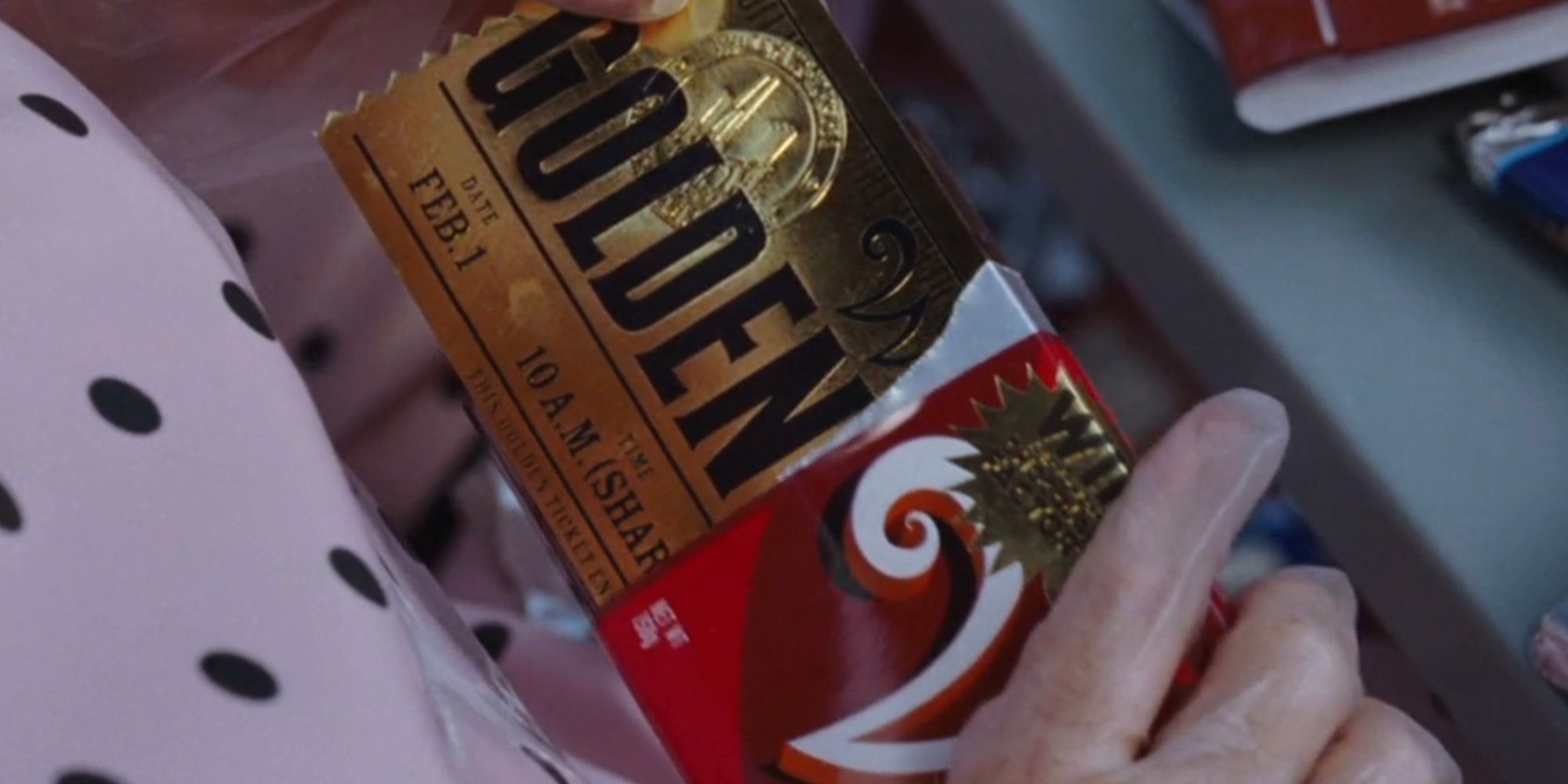
Throughout Wonka, the chocolatier mentions his mother, who nurtured his love for chocolate and promised him she would be there with him when he opened his first candy shop. Wonka kept the last chocolate bar she made, and at the end of the movie, he unwrapped it and found a golden ticket with a message from his mother, in which she said that chocolate is best shared. This gives the Golden Tickets in Willy Wonka’s contest a deeper and more emotional meaning, with Willy remembering his mother’s words.
